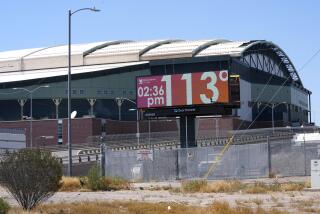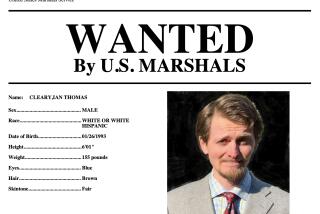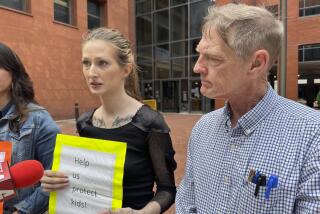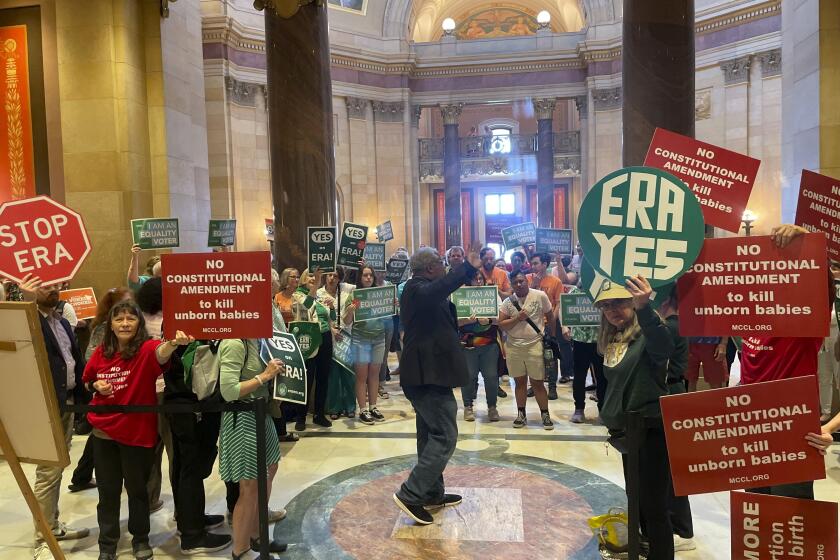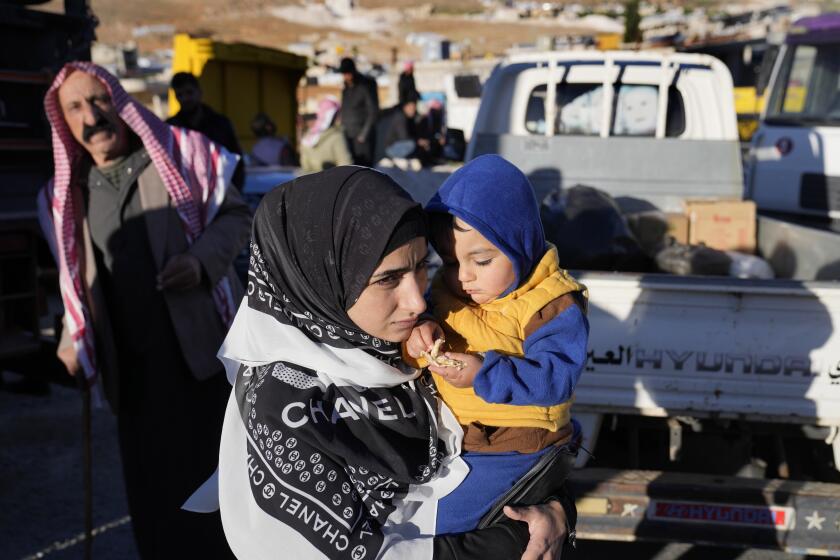Poland’s Ex-Leader Appears in Court
Former Communist leader Gen. Wojciech Jaruzelski appeared in court Tuesday to face charges of ordering Polish troops to fire on striking shipyard workers during 1970 demonstrations that left at least 44 protesters dead and hundreds wounded.
Jaruzelski, 77, who has been living in comfortable retirement, walked into the courtroom here with steady steps but using a cane, wearing his trademark tinted glasses and looking straight ahead. He made no comments to reporters or to the judge, speaking with only his lawyers and co-defendants during breaks in the five-hour session.
It was Jaruzelski’s first court appearance in five years, coming after a long legal fight in which he cited ill health to resist trial in the Baltic Sea port of Gdansk, one of the cities where the protests and killings took place.
Defense lawyers sought a further delay Tuesday, urging that the indictment be sent back to prosecutors as legally flawed. In their arguments over that motion, the two sides bitterly debated a range of technical issues and the question of responsibility for the killings. The judge put off ruling on the motion until Thursday.
Jaruzelski and 11 co-defendants, eight of whom appeared in court with him, are accused of “supervising” murder and issuing illegal orders for the use of firearms that led to death and injury.
The defendants could face life in prison if convicted. Court documents list about 1,100 witnesses who might be called in the case, and statements from about 2,000 others have been taken and could be read in court. Legal experts have predicted that the trial might take two to three years or longer. None of the defendants are imprisoned; three might be excused from court proceedings because they are old and in poor health.
The 1970 strikes were triggered by anger over price increases for food, coal and clothing. While the indictment is for 44 deaths, historians agree that at least 56 strikers died in fighting that included the burning of the local Communist Party headquarters.
Some of those killed were striking peacefully or trying to go into the shipyards when they were shot. Lech Walesa, who went on to found the anti-Communist Solidarity trade union and eventually became Poland’s president, was among the leaders of the 1970 strikes.
Polish society is deeply divided in its views of Jaruzelski’s historical role and current legal battle, which he is fighting as much to secure a place of respect in Polish history as to escape punishment.
Defense minister at the time of the bloodily suppressed protests, Jaruzelski went on to become general secretary of Poland’s Communist Party. In that position, he declared martial law and cracked down on the Solidarity movement in December 1981. He reached a 1989 deal with Solidarity that provided for a peaceful transition from communism. As part of that deal, he served as Poland’s president from 1989 to 1990.
Jaruzelski repeatedly has denied any responsibility for the 1970 events, arguing that during the crackdown he was bypassed in the chain of command. He also has said that among the ranks of the protesters were violent criminals.
One of the defense arguments is that the indictment is flawed because it names high-ranking commanders and political leaders but not the people who pulled the triggers.
The prosecution counters that it is not necessary to identify individual police officers and soldiers who opened fire.
The former president has accepted full responsibility for the 1981 imposition of martial law, which he and many supporters defend as a patriotic act that headed off a Soviet invasion.
Jaruzelski joined the Polish army formed in the Soviet Union in 1943 and is considered by many of his backers to be a hero of the fight against Nazi Germany’s occupation of this country during World War II.
“He’s a national hero, and he’s being taken to court like a criminal,” complained Stanislaw Ludwiczak, 72, one of about a dozen war veterans who showed up at the courthouse to offer moral support to Jaruzelski.
Another veteran, Daniel Przemyslaw, 75, brought a bouquet of purple and white carnations to give the retired general as a sign of soldiers’ support.
“We fought together,” Przemyslaw said. “He was always a decent man, a hard-working man. He never stole anything from Poland. All the soldiers really liked him. Maybe he had one fault: He didn’t drink vodka. He never made any money, he never became rich. I think he will go into the history books as having played a great role for our nation.”
The legal proceedings against Jaruzelski and his co-defendants were launched in 1990 with an investigation by navy prosecutors, and then transferred to civilian authorities three years later.
Among the co-defendants in court Tuesday were Stanislaw Kociolek, deputy prime minister at the time of the killings, and Tadeusz Tuczapski, the deputy defense minister. The other co-defendants who appeared in court were five former military commanders and an army political officer.
More to Read
Start your day right
Sign up for Essential California for news, features and recommendations from the L.A. Times and beyond in your inbox six days a week.
You may occasionally receive promotional content from the Los Angeles Times.
